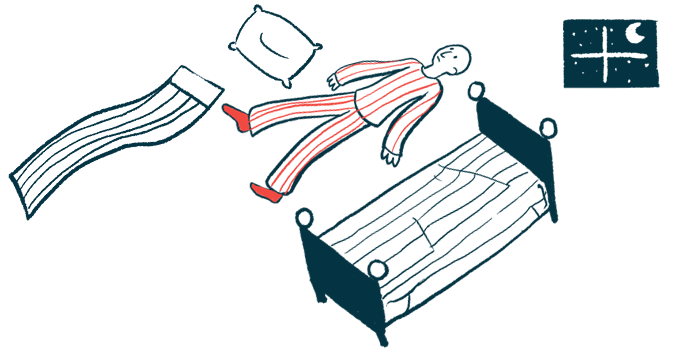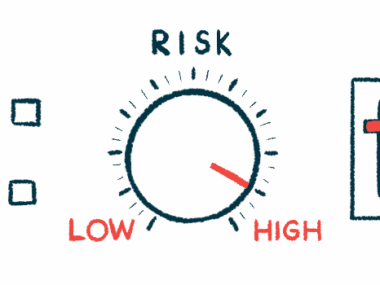Sleep quality better after Cushing’s remission, but problems remain
US study finds no real drop-off in patients taking medications for sleep
Written by |

Sleep quality markedly improves for people with endogenous Cushing’s syndrome after treatment leads to disease remission, but nearly half of these patients continue to experience sleep disturbances.
Those are the findings of a single-center study in the U.S. that also demonstrated that the proportion of Cushing’s patients taking medications for sleep was not significantly reduced after treatment.
Also, among those who achieved disease remission, anxiety and depression were significantly associated with worse sleep.
According to the researchers, these data highlight the need for further studies “to develop effective management strategies for insomnia and comorbid [simultaneous] conditions, with an overall goal to lessen the long-term burden of CS [Cushing’s syndrome] that exists even after successful treatment.”
The study, “Sleep disruption in patients with active and treated endogenous Cushing’s syndrome,” was published in the journal Pituitary.
Sleep quality affected in more than half of endogenous Cushing’s patients
Cushing’s syndrome is an umbrella term for disorders marked by high blood levels of cortisol, a glucocorticoid hormone. An excess of cortisol may happen because of medications — when it’s known as exogenous Cushing’s — or due to problems within the body that lead to the overproduction of the hormone, which is called endogenous Cushing’s.
Cushing’s disease is the most common form of endogenous Cushing’s. It’s caused by a tumor in the brain’s pituitary gland, which produces excessive levels of the ACTH hormone that triggers cortisol production by the adrenal glands, located atop the kidneys. Other forms may be caused by an adrenal gland tumor that promotes excessive release of cortisol.
Because cortisol helps the body stay alert and ready for action during the day, having too much cortisol at all times can make it harder to sleep well at night. More than half of endogenous Cushing’s patients report insomnia and disrupted sleep.
Surgery to remove the disease-causing tumor is a common approach to treating the condition. Because this surgery may drastically reduce cortisol production, many patients need lifelong treatment, replacing cortisol with a glucocorticoid.
However, “normalization of cortisol levels does not always result in complete remission of clinical, metabolic, and neuropsychiatric abnormalities, and long-term quality of life remains impaired,” the researchers wrote.
Now, a team led by researchers in the U.S. and Canada sought to characterize sleep problems in endogenous Cushing’s patients and evaluate whether treatment has an impact on these issues. The researchers also wanted to identify potential risk factors for sleep issues among patients.
To that end, the team analyzed data from 113 patients: 104 with a pituitary tumor and nine with an adrenal tumor. The patients’ mean age at diagnosis was 43.9, and most (83.2%) were women.
All were enrolled in an ongoing study at the Memorial Sloan Kettering Cancer Center, in New York, between 2017 and 2022.
Patients were assessed at several treatment stages: active disease (stage 1), six months after either surgical remission or hormonal control on medical therapy (stage 2), and/or six months after discontinuing post-surgery glucocorticoid replacement or about 1-1.5 years after disease remission on medical therapy (stage 3).
Stage 1 data was available for 67 patients, with stage 2 results for 50 and stage 3 data for 65.
Sleep quality was assessed using the sleep score of the Nottingham health profile (NHP) scale, in which higher scores indicate worse impairments.
Disrupted sleep significantly linked to depression and anxiety
The results showed that patients with treated disease, or stage 3, had significantly lower NHP sleep scores than did those with active disease, or stage 1 (mean of 29.6 vs. 51.9). This indicated an easing of sleep impairments with treatment.
According to scores on the CushingQoL quality of life questionnaire, significantly fewer treated patients reported having trouble sleeping often or always, when compared with those with active disease (41.9% vs. 65.1%).
Symptoms of anxiety and depression, assessed with the Hospital anxiety and depression score (HADS), also were significantly eased following treatment. A significantly lower proportion of treated patients experienced irritability often or always, as assessed with CushingQoL, relative to those with active disease (16.1% vs. 43.5%).
Between stage 1 and stage 3 patients, there was a reduction in the percentage of patients using medications for sleep (37.9% vs. 30.6%) and anxiety or depression (30.3% vs. 27.4%), but these differences were not statistically significant.
Similarly, both pain severity, measured by NHP, and rates of frequent pain, as assessed with CushingQoL, were reduced after treatment, but these differences failed to reach statistical significance.
We found that some measures of sleep improve with treatment, but nearly half of treated patients report ongoing sleep challenges, and one third report taking sleeping pills,
Statistical models showed that higher anxiety and depression scores, but not pain scores, were significantly associated with higher NHP sleep scores, or worse sleep. Specifically, NHP sleep scores increased, or worsened, by 2.15 points for every one-point increase in the HADS depression score, and by 1.95 points for every one-point increase in the HADS anxiety score.
Among treated patients, those taking sleeping or pain medications had higher (worse) NHP sleep scores than those not on such medications.
“We found that some measures of sleep improve with treatment, but nearly half of treated patients report ongoing sleep challenges, and one third report taking sleeping pills,” the researchers wrote.
“Disrupted sleep may be related to ongoing pain, depression, and anxiety,” the team added, noting that additional studies are paramount for identifying “clinically relevant predictors of sleep disruption among patients with CS.”







